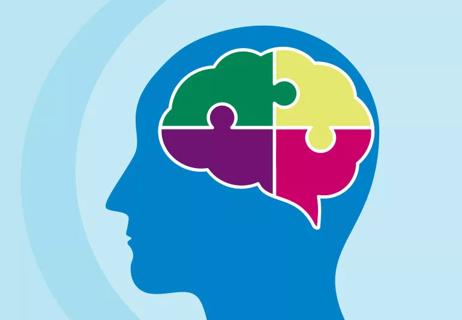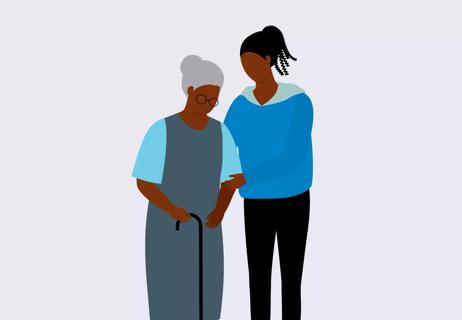Don’t ignore issues that affect your ability to remain independent

Contributor: Ronan Factora, MD
Advertisement
Cleveland Clinic is a non-profit academic medical center. Advertising on our site helps support our mission. We do not endorse non-Cleveland Clinic products or services. Policy
You’ve probably heard this phrase before: “I’m just getting older.” The statement often is made to explain myriad aches and pains, memory lapses and mobility limitations, and may reflect acceptance that some parts of your body do not work as well as they once did due to aging — a truth that all creatures experience.
The explanation should be used with caution, though. I often tell my patients not to blame something they are experiencing on “just getting older,” because they might miss something that could be treatable.
People frequently use this expression to dismiss daily symptoms, which could result from an underlying disease, leading to needless suffering that could have been evaluated and appropriately treated.
Memory complaints do occur very frequently as you get older. Delays in recalling words and names – feeling that what you want to say is “just on the tip of your tongue” – are a part of normal aging. Unfortunately these delays lengthen as you gets older. Multitasking and learning new things also become more challenging.
These are normal aging experiences, but none of these changes should affect your ability to remain independent in performing basic and instrumental daily living activities.
Advertisement
Often, people who experiences a memory complaint never bring up the issue with their doctor. Sometimes patients have so many medical problems that, despite the best efforts of their primary care physician, managing other medical problems takes away the time needed to address a memory concern appropriately.
Memory complaints become significant when they begin to affect daily life.
Sometimes a person’s ability to remain employed, perform work-related tasks, participate in community activities or maintain hobbies declines, which leads that person to retire or quit an activity.
When memory problems impair a person’s ability to engage in everyday routines such as managing finances, driving in familiar areas or taking medications regularly and reliably, then the memory problems should not be ignored or brushed off as a normal part of aging.
An evaluation focused on memory complaints should be performed if such signs are observed.
A basic workup includes a review of the memory or cognitive issues, specifically how long the problems have been noted, and any other associated mood, behavioral or movement problems.
Cognitive testing (such as a Folstein Mini-Mental State Examination or Montreal Cognitive Assessment) should be performed to document the presence and severity of the cognitive impairments.
A screening for depression also should be performed, along with routine blood work. A CT scan of the brain also could be performed to exclude other problems.
Ultimately, all of this information should be reviewed to uncover the most likely explanation for the memory problems and to determine the best ways to manage those issues.
Though dementia may be the first cause that comes to mind with memory complaints, there can be other reasons.
It’s important to remember that changes with memory and cognitive function accompany — but aren’t necessarily explained by — normal aging. If you have a concern or if function becomes compromised because of memory problems, always bring it up with your physician.
Advertisement
The ultimate goal is to preserve independence and to plan ahead if you need assistance.
This post is based on one of a series of articles produced by U.S. News & World Report in association with the medical experts at Cleveland Clinic.
Advertisement
Learn more about our editorial process.
Advertisement

Decreasing estrogen levels can cause brain fog, but symptoms of dementia are different and more pronounced

Use a gentle, nonjudgmental tone, focus on prevention and reassure them that age-related memory issues can have a variety of causes

The brain areas that process smell are closely connected to those responsible for our memories and emotions

Our collective misremembering of events comes from a surplus of false memories

Cardio is great for improving cognition, but strength and balance training are just as important

6 conditions can contribute to memory loss

The difference between normal aging and issues that affect your independence

And 12 easy tips that can pay off big

If you’re feeling short of breath, sleep can be tough — propping yourself up or sleeping on your side may help

If you fear the unknown or find yourself needing reassurance often, you may identify with this attachment style

If you’re looking to boost your gut health, it’s better to get fiber from whole foods